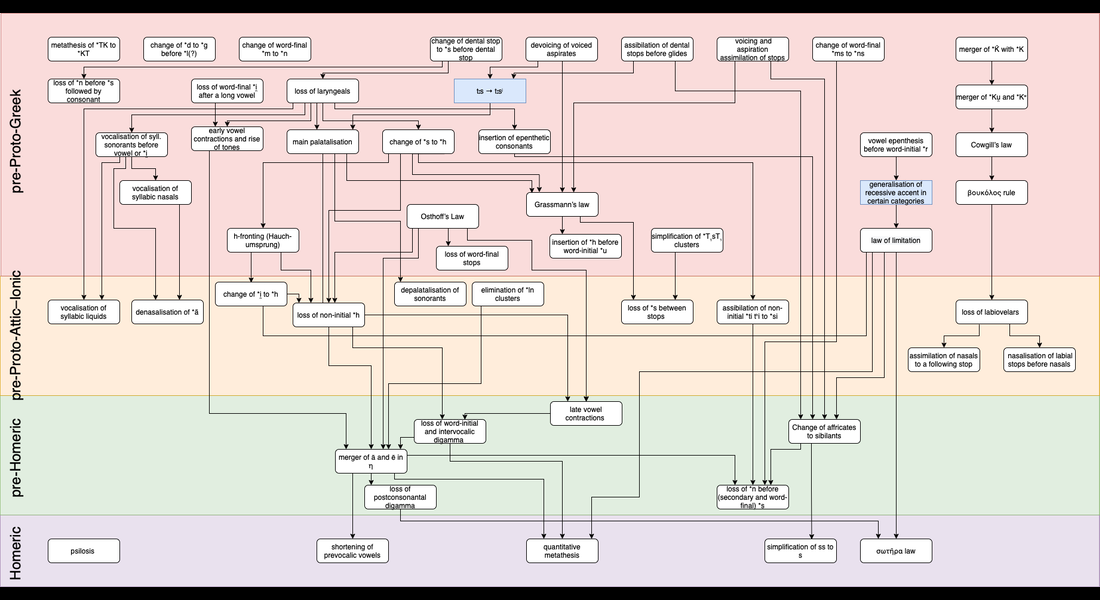Seminar: Relative chronology in historical linguistics

Relative chronology has always played an essential role in historical linguistics. Despite its importance and ubiquity in discussions of linguistic change, however, relative chronology is usually treated as a means to achieve other objectives, rather than being an object of study in itself. With the seminar we wish to put relative chronology in the spotlight – not as a secondary tool for the examination of other topics, but as a primary object of investigation.
The talks discuss topics focusing on relative chronology, including but not limited to:
- methodological issues related to relative chronology
- relative dating of changes across different domains (phonology, morphology, syntax)
- systematic models of relative chronology (e.g. the relative chronology of sound changes from PIE to Ancient Greek)
- the role of relative chronology in phylogenetic modelling
- computational approaches to relative chronology
- theoretical and methodological issues related to relative chronology and language contact
Since the seminar is not concerned with specific problems but focuses on more general and methodological problems, the language families or branches used for illustration are of minor significance.
Online attendance is possible via the link below.
The seminar is organised within the framework of the research project “Connecting the Dots: Reconfiguring the Indo-European family tree”, funded by the Independent Research Fund Denmark.
Florian Wandl, University of Zurich
Thomas Olander, University of Copenhagen
Map of South Campus
View directions.
View on map of the Faculty of Humanities - South Campus.
View map of South Campus (pdf).
